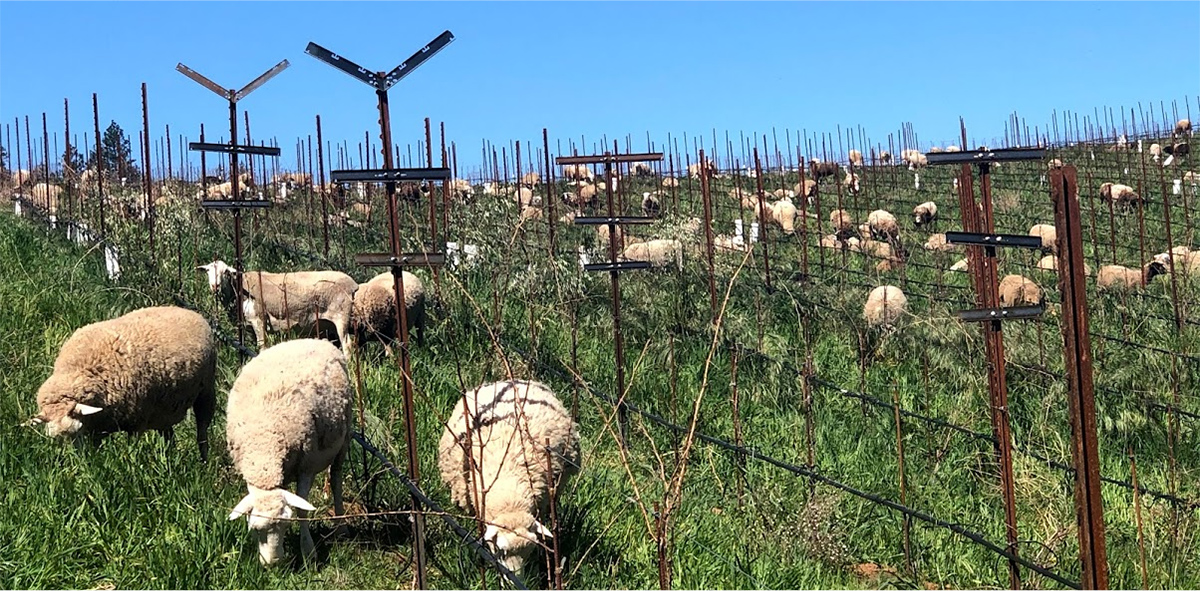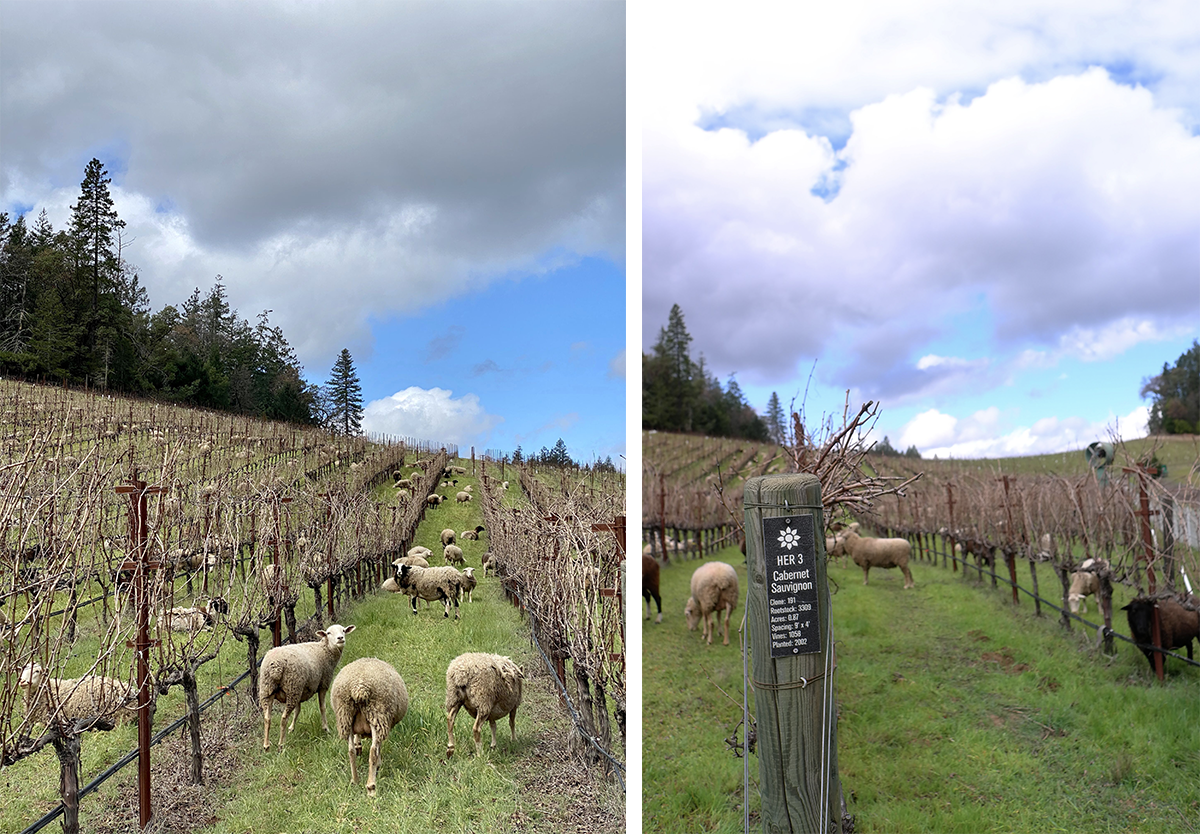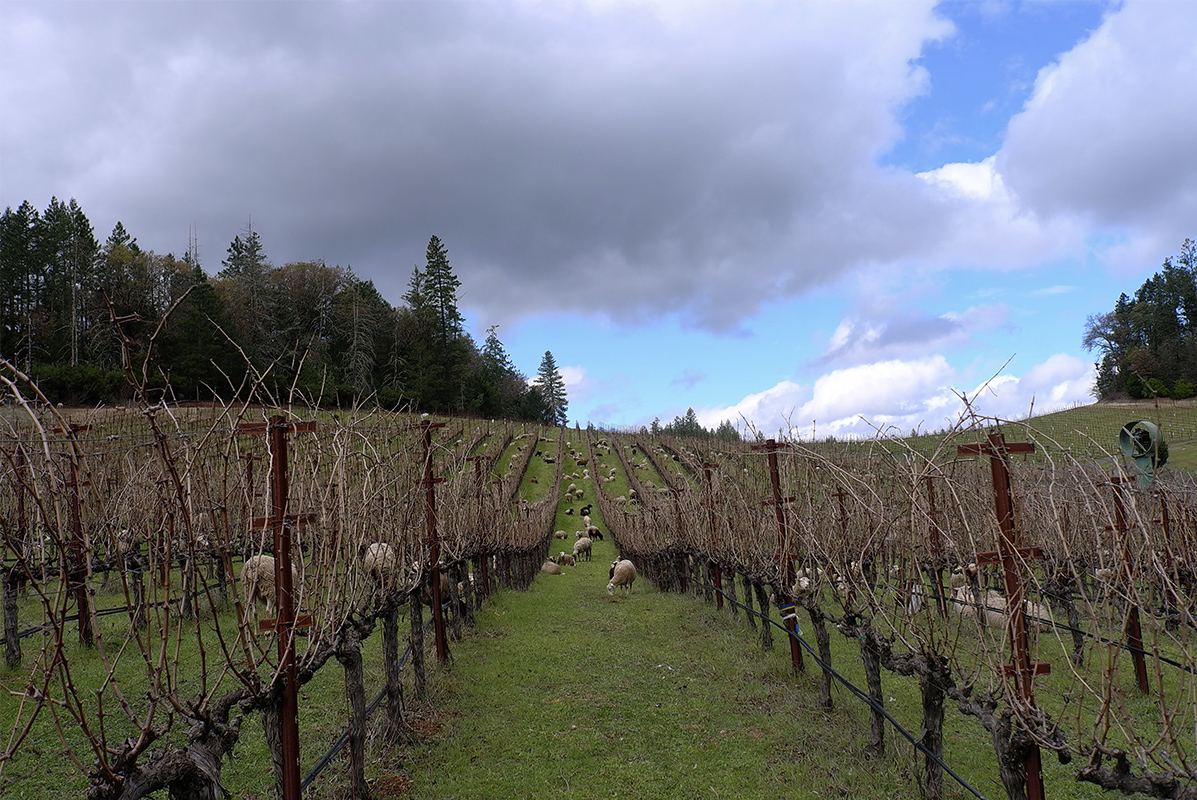Spring Update
We write to you from Napa Valley where the weather has been warm and sunny, quickly transitioning into the cooler, rainy spring season we know well. As we continue pruning, our new “no till farming” team of sheep have taken up residence at Hershey Vineyard.

In accordance with our Certified Organic farming practices, we are restricted from using many different types of pesticides, herbicides, and only natural fertilizers like compost. The lack of herbicides means there is little control over weeds in the vineyards which causes competition with the grape vines. Our previous methods of weed reduction included tractor tilling and mowing, creating more diesel pollution, soil compaction, and not all vineyards have tractor access due to steep slopes. Over the last five years, we have tilled less and seen the benefits in the vineyards and wines.

Here is the short on the science: Most of the beneficial microbes live in the top 4-8 inches of the soil. They provide a critical function of the vines in allowing access to micro and macro nutrients in the soil. The microbes thrive with little moisture, in soil that is in a moderate temperature range, and that has moderate organic matter. Cultivation of the soil turns the upper 6-8 inches exposing it to the sun, drying it out, killing any microbes that are exposed, turning the organic matter (basically the cover crop/grasses) into the soil, and in the process destroying the structure of the soil. Degrading the beneficial microbe populations has a negative impact on the vines, so we’ve invited some wooly guests to the vineyards to share their expertise in weed management.
Using sheep for the first “mowing” pass in the vineyards allows them to eat the cover crop down to the soil but leave a little stubble. The stubble shades the soil providing heat protection for microbes and the roots of the cover crop helps preserve soil structure. They also digest the grass and weeds, turning them into nitrogen-rich fertilizer that the vines need. The sheep do not compact the soil or destroy the soil structure, which keeps small open spaces of oxygen that microbes need to provide vines access to micronutrients.


